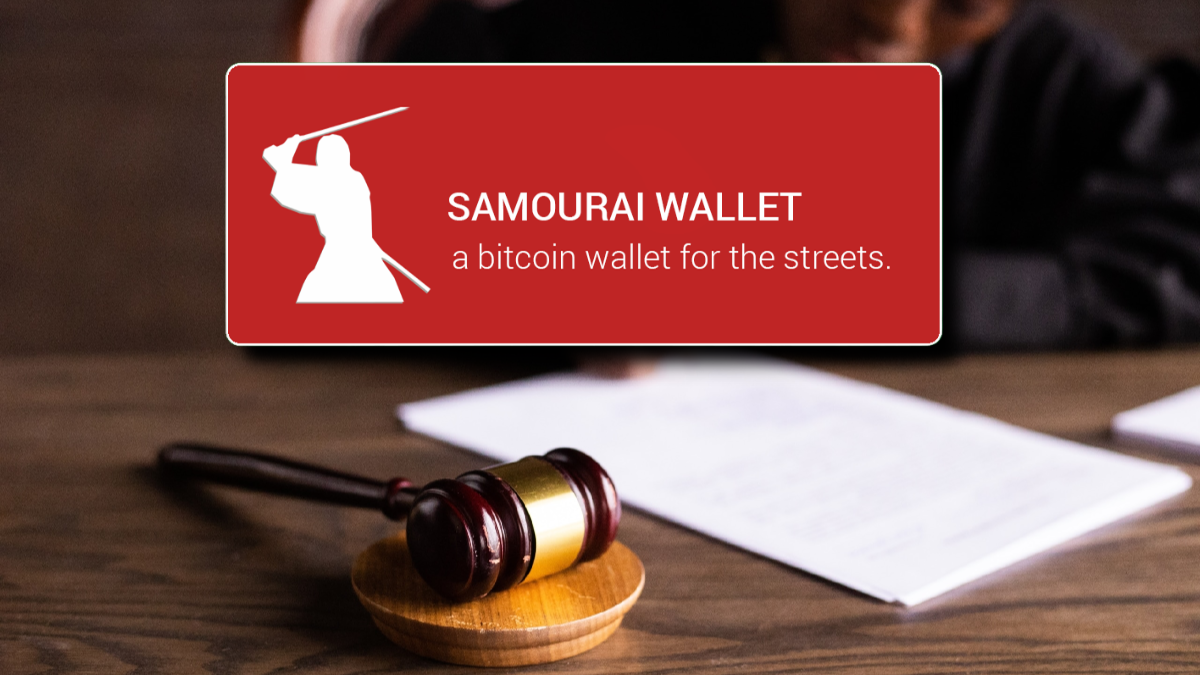US Government Pushes for Five Year Prison Term in Samourai Wallet Case

The United States government has recommended the maximum five-year prison sentence for Keonne Rodriguez and William Hill, the developers behind the privacy-focused Samourai Wallet. Both men pleaded guilty earlier this year to a single count of conspiracy to operate an unlicensed money transmitter. As their sentencing approaches, the prosecution portrays their work as a deliberate tool for criminal activity, while the developers maintain they built the software to enhance Bitcoin privacy features.
Federal prosecutors argue that Rodriguez and Hill designed Samourai Wallet from the start to facilitate money laundering and sanctions evasion. In a detailed sentencing memorandum reported by The Rage, the government claims the pair laundered at least $237 million tied to serious crimes, including drug trafficking, darknet operations, cyber intrusions, frauds, murder-for-hire plots, and even a child pornography site. This level of detail marks a new emphasis in the case, as earlier reports had not highlighted connections to such extreme offenses.
The memorandum points to specific features like Whirlpool and Ricochet as evidence of intent to obscure illicit funds. Prosecutors describe Whirlpool as a mixing service that made it nearly impossible to trace transactions, while Ricochet added extra steps to further complicate any trail. They also highlight website language that promoted these tools as ways to evade blacklists used by exchanges and regulators, framing such marketing as an open invitation to criminals.
Stay In The Loop and Never Miss Important Crypto News
Sign up and be the first to know when we publishDevelopers Counter with Focus on Privacy Ideals
Rodriguez and Hill, in their own submissions to the court, reject the narrative of criminal complicity and seek sentences equivalent to time already served. Hill reflects on his motivations rooted in Bitcoin's promise as digital cash free from excessive oversight. He explains that the wallet aimed to restore anonymity lost to blockchain transparency, viewing privacy as essential for everyday users facing political or personal threats.
Legal counsel advised the developers in 2020 that their non-custodial model avoided classification as a money transmitter, a stance Hill says gave him confidence in their compliance. Supporters, including New York University professor David L. Yermack, link Samourai's ethos to broader traditions of resisting surveillance, drawing parallels to thinkers like Milton Friedman and the Cypherpunk movement. Yermack notes recent critiques from SEC Commissioner Hester Peirce on efforts to criminalize financial privacy tools.
Rodriguez echoes these themes, emphasizing his belief in operating within legal bounds while addressing Bitcoin's inherent traceability issues. A former Mt. Gox victim credits him with personal assistance in recovering stolen funds, underscoring his commitment to helping crime victims through tools like the open-source OXT blockchain explorer. Though his full sentencing letter awaits public release via court records, it aligns with Hill's in portraying Samourai as a principled stand against overreach.
The prosecution acknowledges the developers' criticism of anti-money laundering rules but dismisses it as hostility toward law enforcement aids like Chainalysis. Yet it concedes that server data showed the pair retained some user information for operational needs, a point the defense attributes to light wallet functionality rather than deliberate tracking. Only a minority of users shared extended public keys, according to Hill, who ties this to balance calculations rather than any scheme to undermine privacy claims.
Broader debates over financial surveillance add context to the case. Lawmakers have introduced reforms to the Bank Secrecy Act, with House Financial Services Committee Chairman Patrick McHenry calling it a "bloated surveillance machine" that burdens ordinary transactions without clear benefits. Hill's past comments on "structuring" laws reflect this frustration, though he now expresses regret over some marketing language that may have fueled misinterpretations.
Sentencing hearings for Rodriguez and Hill are set for November 6 and 7 before Judge Denise Cote in the Southern District of New York. The dropped charges of money laundering conspiracy and sanctions evasion underscore the plea deal's scope, yet the government's push for the full penalty signals a firm stance on privacy tools in crypto. As the court weighs these arguments, the outcome could shape how developers balance innovation with regulatory expectations in the evolving cryptocurrency space.

